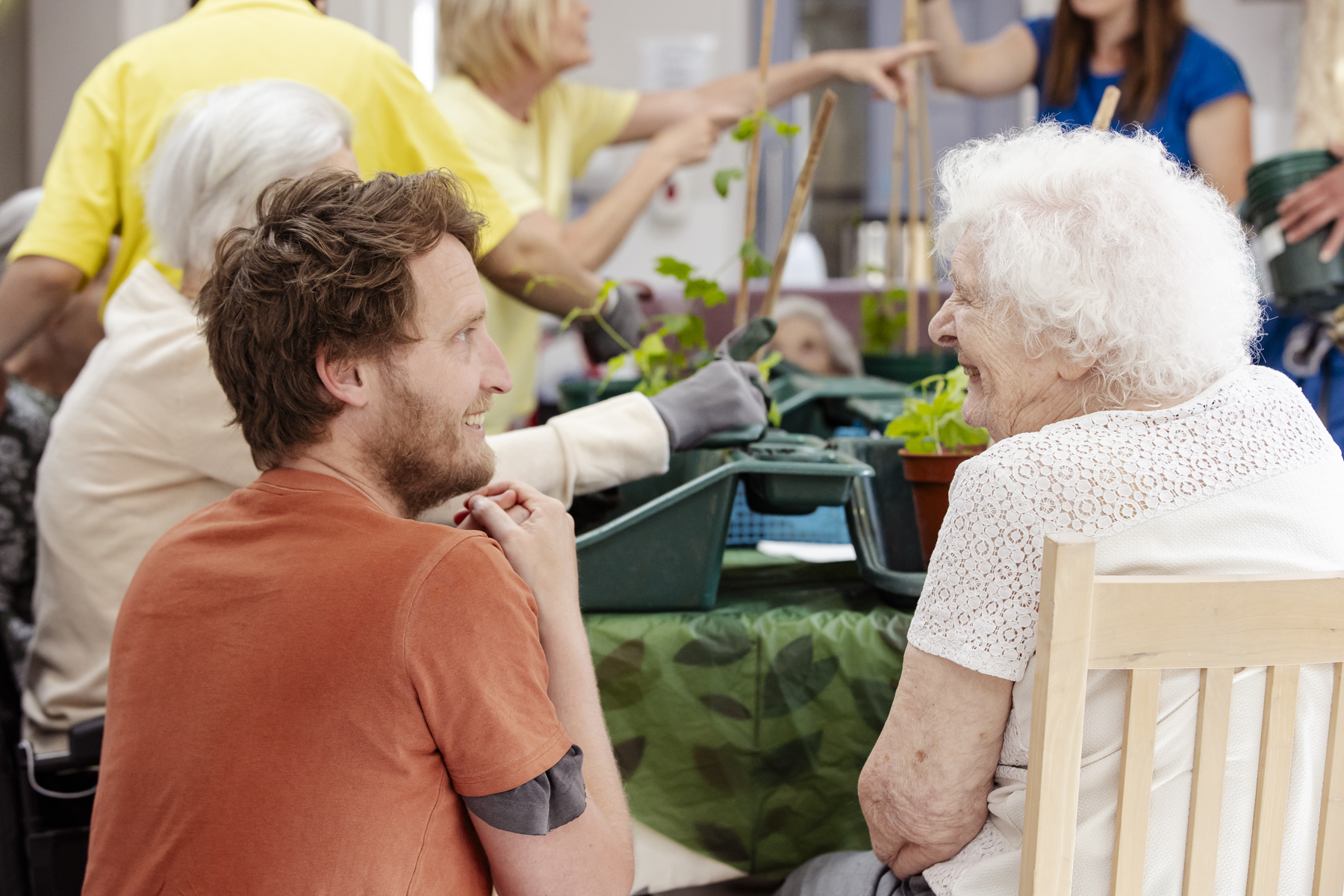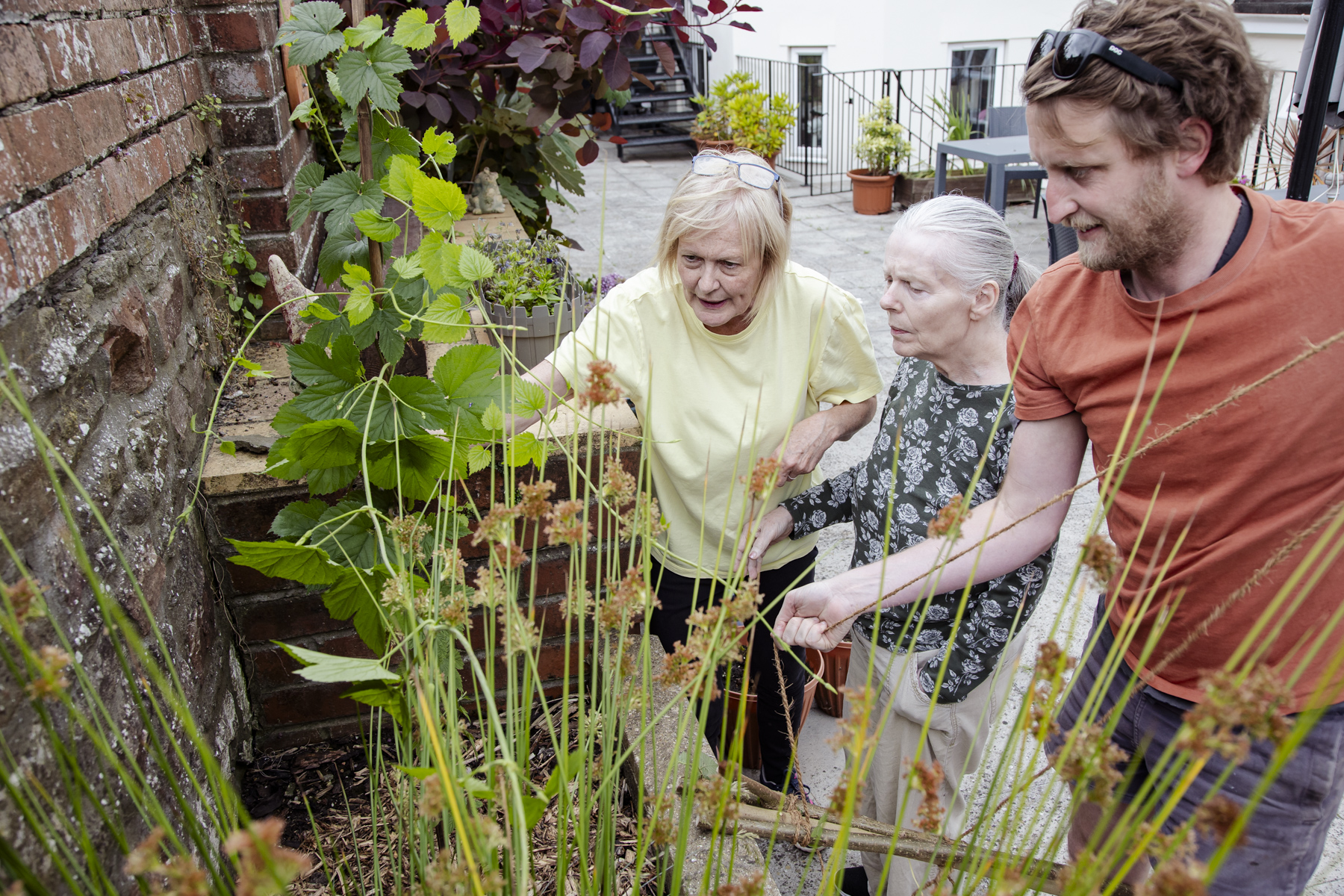The Hoppiness Project is a research project based around a seasonal programme of activities for people living in care homes that are all about growing hops and brewing beer.
Co-designed by Guy Manchester, horticultural therapist and activity leader at Alive Activities, along with researchers at the University of Bristol, the project was funded throughout 2023/2024 by the Brigstow Institute.
Together, The Hoppiness Project collaborated with the Bristol Hops Collective to obtain the expert knowledge of the community group’s local brewers, hop growers and volunteers.
The Hoppiness Project involves encouraging elderly people living with progressive illnesses to look at, handle and talk about brewing and garden memorabilia.
In August this year, the beer study took place at local, Bristol-based care homes Meadowcare Home and Beaufort Grange. As part of the process, the care home residents planted and tended to the hop plants, sang and listened to music, visited a local brewery, took part in arts and crafts activities, harvested hops and of course, tasted their very own beer.

Martin Preston, doctoral researcher at the School of Education, University of Bristol, participated in the study.
The purpose of working with care homes was to explore how sharing a beer and planting the hops might encourage their elderly residents to spark conversations around celebrations, parties, gardening, nature and many everyday social aspects of adult life.
Talking and reminiscing about beer and pub culture offered the care home residents a way of exploring different aspects of people’s lives and identities without restriction or censorship; especially as care home residents may have less agency around their food and drink consumption.
Working with care home residents living with dementia, the Hoppiness exercises helped to restore a sense of their identity, as reported by the BBC.
The Hoppiness Project has been gaining local attention in the last few months, having been featured on BBC Points West on Thursday 7th November. The Guardian also visited Deerhurst Care Home (ran by Brunelcare) to see the Hoppiness project in action and observe the impact on its elderly residents, which was then shared on the publication’s Instagram.
Among the University of Bristol researchers involved in The Hoppiness Project were Dr Karen Gray (research lead) based within the School for Policy Studies and Martin Preston, PhD researcher at the School of Education.

Residents in local, Bristol-based care homes participated in activities such as growing hops plants and brewing beer.
Reflecting on his involvement in the project, Martin Preston said: ‘With a background in education and a passion for growing, I have worked to support both the research with Dr Karen Gray and the hands-on activities with Alive Activities with participants throughout the project.’
‘This has involved working with participants to support their nurturing of plants over the growing season, and also developing an open-source project pack which will be freely available for practitioners in other care settings to use if they want to create similar growing and brewing activities with their residents.’
‘The purpose of the open-source pack is to provide an educational resource which practitioners from other care settings can use to support them in starting their own hoppiness project.’
In October this year, the University of Bristol researchers begun analysing the data they collected throughout the study to further uncover how memory and the senses are linked, and whether the activities undergone throughout The Hoppiness project enabled agency in participants.
On top of this, all researchers involved are currently working on an academic paper regarding the study and have plans to present it at upcoming conferences, including at the meeting of the Drinking Studies Network in December this year.
